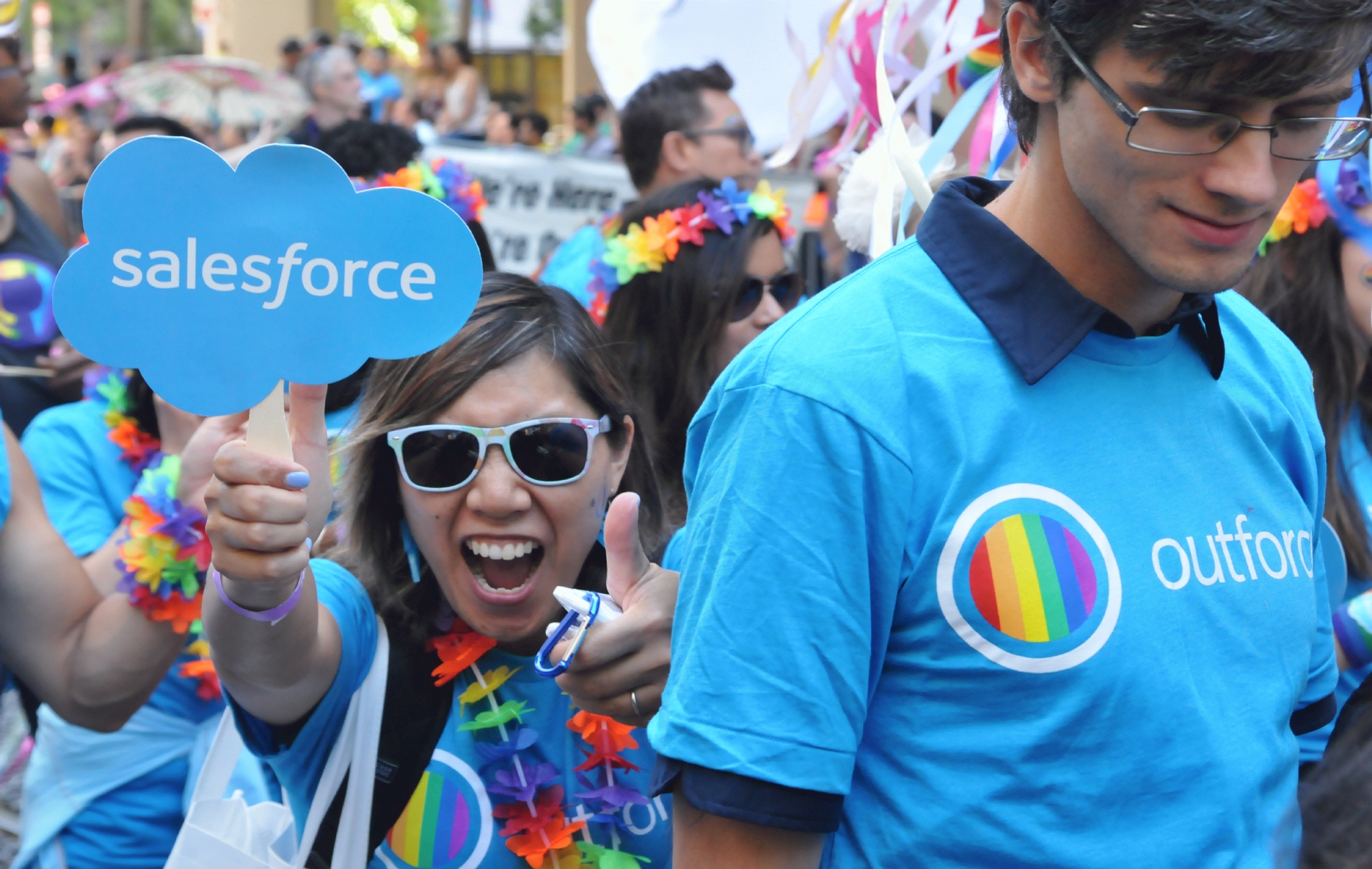
Get your FREE 30-day trial.
Please complete all fields.
Customers and employees want to do business with — and work for — equality-driven companies. In fact, 80% of business professionals believe companies have a responsibility to go beyond profit to make an impact on society, according to a forthcoming report by Salesforce Research.
Looking around our country’s boardrooms and conference calls, a major equality gap is present. The evidence:
Research by the World Economic Forum reports that at the current pace, it will take women 170 years to gain pay parity with men.
Less than 31% of employee populations at major tech companies are women, and less than 6% of those populations are hispanic or black, according to diversity numbers reported by major tech companies.
Pew Research finds that fewer than half (45%) of all Americans say the country has made substantial progress toward racial equality.
You may be thinking, ”But I’m not a CEO — I can’t address these concerns on a major scale at my company.” To the contrary, every employee can be a leader in this critical zeitgeist. We at Salesforce like the way Zamantungwa Khumalo puts it:
“Responsive leadership has no title, no age group, and has very little to do with whether or not you are an elected official or CEO of a company. Responsive leadership is our ability to take action and actively play our part in our communities.”
Are you ready to take an active role in making this important change? We’ve created a new e-book to show you why we at Salesforce believe that every company’s higher purpose should be driving equality for all. This e-book also shares many important action steps to help you and your team members become equality trailblazers.
Here’s a preview of the content to get you started with several ways you can help lead this important change, starting today.
1. Lead with your values. A core set of values can be your compass and anchor, especially in times of turmoil. When was the last time your company revisited its “About Us” page on the website, especially the part about your key values? It’s time to add equality to the mix, and lead from there.
Align your company around equality as a value to help all employees be focused and intentional about moving forward.
2. Invest in employee resource groups (ERGs). Diversity and equality start at the employee level. ERGs can be a great way to celebrate diverse groups and build communities. At Salesforce, these voluntary employee-led groups serve as a resource for minorities in the workplace. A few examples include Outforce, Vetforce, Latinoforce, and Women in Technology. If groups don’t exist at your company, help create them.
Leaders should empower and invest in these groups to create change — and most of all, listen to their perspectives.

3. Recruit for diversity. If you play a role in hiring, either on an individual basis for new members of your team or on a broader scale, create a strategy to increase the diversity of your candidate pool through decreasing bias in recruiting processes, expanding your target schools, and strategic partnerships with diversity-focused organizations.
4. Think equality-first in design. Are you involved in creating new products or services for your company? Strive for a diverse user testing group and programming team so you can better evaluate how a broad group of people experience your products. This will also help you avoid unintentional discrimination.
Maintain this equality-focused mindset as you design your website, create printed collateral for your brick-and-mortar stores, and choose speakers for your conferences. It helps people feel at ease when they see themselves represented.

5. Create apprenticeship opportunities. Internships are a great way to educate and train the workforce of the future. Companies can help ensure everyone has an equal opportunity to succeed — despite their background, where they live, or their identity — by creating and supporting apprenticeship programs.
For every step you take toward bringing about more equality-minded changes in your company, you can be confident that you’re doing more than just doing business. You’re doing the right thing for your employees, customers, business, community, and world.